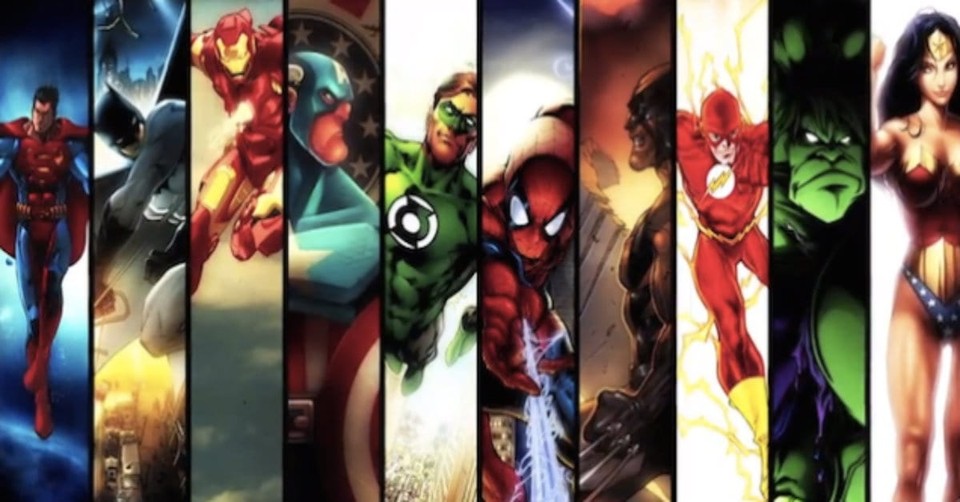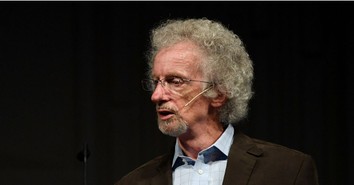Superhero Season is Back!

Superhero season is back. Capes, cowls, hoods and shields are everywhere. On network TV, you can choose from Arrow, The Flash, Gotham, and Marvel's Agents of S.H.I.E.L.D. Netflix recently released the first season of Daredevil, Marvel’s darkest, most violent production yet, complete with an MA rating. The next Avengers installment hit theaters this weekend. And there is more to come, with over thirty comic-themed films from DC and Marvel slated for release over the next five years.
I, for one, am happy about this development. I grew up on Superfriends, the campy reruns of the 1960’s Batman, and Christopher Reeve's (still wonderful) version of Superman. I like a good action flick as well as the next guy and have enjoyed the resurgence of superheroes on both the big screen and the small. And while I realize that no Marvel or DC blockbuster is likely to win Best Picture, I still contend that these movies hold more than mere entertainment value.
In a rationalist world, superhero stories can provoke questions about the supernatural and transcendent. Superman, Batman, Spiderman, Captain America – these are the mythological archetypes of the modern world. What the pantheon of Olympus was to ancient Greece, the JLA and the Avengers are in the twenty-first century. In many cases, superheroes directly derive from ancient mythologies. In his well-researched book, Our Gods Wear Spandex: The Secret History of Comic Book Heroes, Chris Knowles explores the mythological, religious, and occultist roots of superheroes. Christians have perhaps been overly quick to point out the parallels between Kal-El and Jesus. Nevertheless, superhero stories can serve as pointers to what C. S. Lewis called the Myth that became Fact.
Even more obvious are the moral and ethical themes explored in these stories. The traditional superhero tale, for example, is usually built around a clear conflict between good and evil. Some stories showcase the sharp difference between the righteous and the wicked (e.g. Superman), while others highlight the complexity of evil and the tortured psyche of the hero – think, for example, of Christopher Nolan’s Dark Knight trilogy. Though some stories approach morality from a murkier, postmodern point of view, the categories of good and evil usually remain intact in the world of superheroes.
These stories also resonate with us because, at their best, they blend the theme of heroism via self-sacrifice with the humanity of the heroes. In fact, the further these films get from the human connection, the weaker they become. The best bits in The Amazing Spiderman films were not the action sequences, but the bits with Peter Parker and Gwen Stacy. And while the battles in Man of Steel got a bit long even for me, a lifelong Superman fan, I was drawn in by the scenes highlighting young Clark’s feelings of alienation, homelessness, and existential longing. One reason we like Spiderman and Superman is because we can relate to Peter Parker and Clark Kent.
One of my favorite people in the world of comics is Alex Ross, an artist renowned for his use of photorealism in his larger than life paintings of the classic heroes. In 2005, Ross worked with author Paul Dini on a series called The World’s Greatest Superheroes, in which he gets back to the roots of superheroes, exploring themes that were common in the comics of the 1930s and 40s, when heroes were fighting against the real world problems of crime and injustice, rather than aliens and super-villains. In these beautifully drawn stories, Ross/Dini have Superman, Batman, Wonder Woman and others take on issues such as world hunger, poverty, and domestic violence. But in each of the stories, the heroes, despite their best intentions, are unable to rid the world of these problems.
While we love these stories, we need a champion far greater than Superman, Batman, or Spiderman, because the problems we face are greater than the external problems of suffering in our world. Even at their best, superheroes have feet of clay and remind us that we need something more: not a mutant or alien in cape or cowl, but the Word made flesh -- an ordinary flesh and blood human being, who entered the fray not only risking his life, but paying the ultimate price in self-sacrifice in order to face and defeat the king of sin and death.
Brian G. Hedges is the lead pastor for Fulkerson Park Baptist Church in Niles Michigan, and the author of several books including Active Spirituality: Grace and Effort in the Christian Life. Brian and his wife Holly have four children and live in South Bend, Indiana. Brian also blogs at www.brianghedges.com and you can follow him on Twitter @brianghedges.
Publication date: May 1, 2015
Originally published May 01, 2015.







